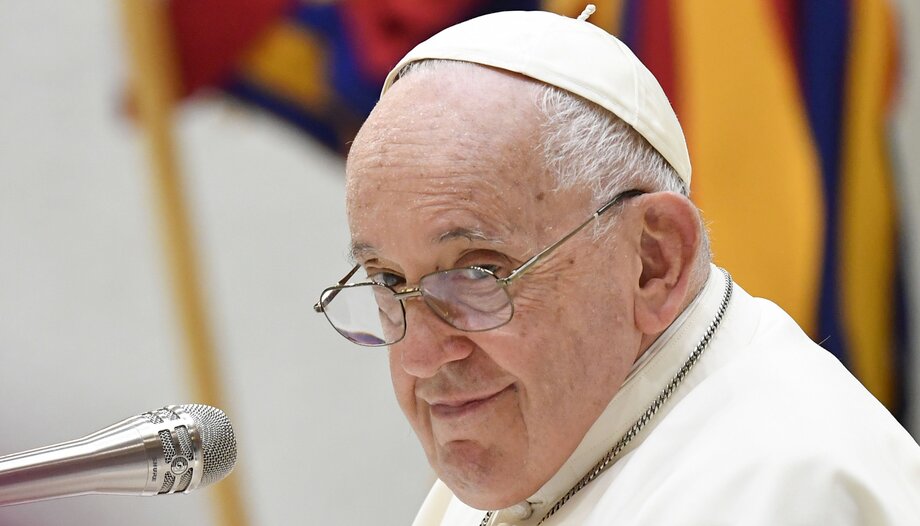Pope Francis has focused today's reflection on the Angelus in Sunday's Gospel, Jesus walking on the waters.
The Holy Father began his commentary with a question: "Why did Jesus make this gesture, perhaps out of an urgent and unforeseeable need, to help his own who were blocked by the headwind? However, it was Jesus himself who planned everything, he made them go out at night, even - says the text - "forcing them" (cfr v. 22). Perhaps to give them a demonstration of greatness and power? But this is not like Him. Then why did He do it?"
The sea as a symbol of evil
Francisco He went on to indicate that, behind this gesture of Christ, there is a message. He explained that "at that time the great expanses of water were considered the seat of evil forces that could not be controlled by man; especially if they were agitated by the storm, the abysses were a symbol of chaos and referred to the darkness of the underworld.
Then, the disciples were in the middle of the lake in the darkness: in them there is the fear of drowning, of being absorbed by evil. And here comes Jesus, who walks on the water, that is, above the forces of evil, and says to his disciples: 'Take courage, it is I; do not be afraid' (v. 27). This is the meaning of the sign: the evil powers, which frighten us and which we do not manage to dominate, with Jesus become bigger. He, walking on the waters, wants to tell us: 'Do not be afraid, I put your enemies under your feet': not people, they are not the enemies, but death, sin, the devil: these enemies He steps on them for us".
"Lord, save me!"
The Pope also emphasized that this scene, far from being an event of 2000 years ago, has a very contemporary message: "Christ today repeats to each one of us: 'Courage, it is I, do not be afraid. Courage, that is, because I am me, because you are no longer alone in the troubled waters of life. And then, what to do when we find ourselves in the open sea and at the mercy of contrary winds? What to do in fear, when we see only darkness and feel lost?
Two things, which in the Gospel the disciples do: they invoke and welcome Jesus. They invoke: Peter walks a little on the water towards Jesus, but then he gets scared, sinks and cries out: 'Lord, save me' (v. 30). This is a beautiful prayer, which expresses the certainty that the Lord can save us, that He overcomes our evil and our fears. Let us also repeat it, especially in times of 'storm': 'Lord, save me.
The Pope invites us to welcome Jesus
The Holy Father then stressed the importance of welcoming Jesus into our boat, in every suffering: "And then the disciples welcomed Jesus into the boat. The text says that, as soon as he got on board, 'the wind died down' (v. 32). The Lord knows that the boat of life, as well as the boat of the Church, is threatened by contrary winds and that the sea on which we sail is often rough.
He does not save us from the fatigue of navigation, but rather - the Gospel underlines it - he urges his own to set out: that is, he invites us to face difficulties, so that these too become places of salvation, occasions to meet him. He, in fact, in our moments of darkness comes to meet us, asking to be welcomed, like that night on the lake".
In conclusion, the Pope invited the participants to ask themselves how each one of them applies these questions in their lives and ended by asking for the help of Mary, Star of the Sea: "So, let us ask ourselves: in my fears, how do I behave? Do I go forward with my own strength or do I call on the Lord? And how is my faith doing? Do I believe that Christ is stronger than the waves and the adverse winds? But above all: do I sail with him, do I welcome him, do I make room for him in the boat of life, do I entrust the helm to him? Mary, star of the sea, help us to seek the light of Jesus in the dark crossings".









